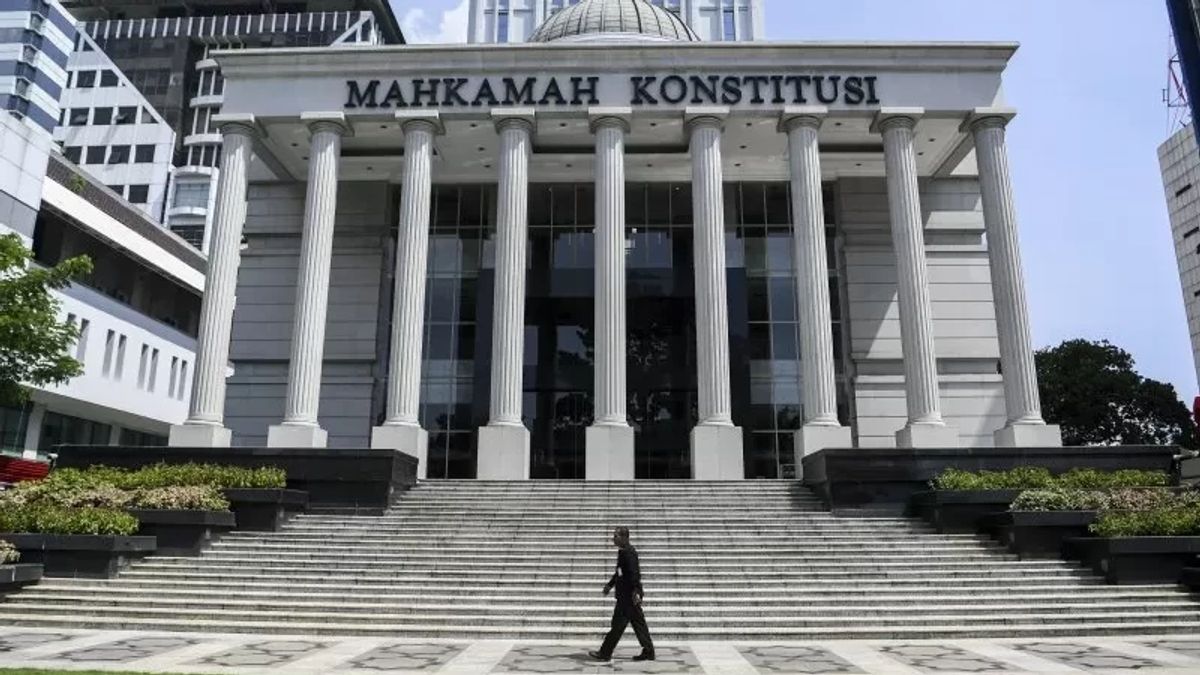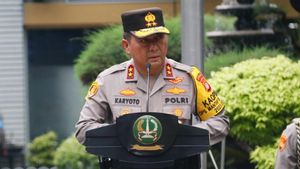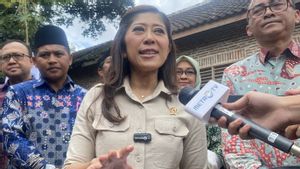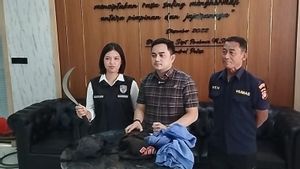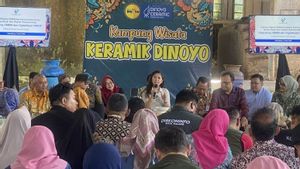JAKARTA - The Constitutional Court (MK) decided that photos or pictures in the general election campaign (elections) should not be fabricated or manipulated excessively with the help of artificial intelligence technology aka AI.
This provision is a new interpretation of the Constitutional Court against the phrase 'self-image' related to photos/images in Article 1 number 35 of Law Number 7 of 2017 concerning Elections. In this case, the Court granted part of the request for judicial review Number 166/PUU-XXI/2023 which was requested by an advocate, Gugum Ridho Putra.
"Granted the petitioner's petition in part," said Chief Justice of the Constitutional Court Suhartoyo reading the verdict at the Plenary Court Session Room, Jakarta, Thursday, January 2, which was confiscated by Antara.
At first, Article 1 point 35 of Law 7/2017 only reads The election campaign is an activity of election participants or other parties appointed by election participants to convince voters by offering vision, mission, program and/or self-image of election participants.
Through this decision, the Constitutional Court stated that the phrase self-image'' in this article contradicts the 1945 Constitution of the Republic of Indonesia and does not have binding legal force, as long as it is not interpreted as Photos/images of itself being the original and the latest and without being fabricated/manipulated excessively with the help of artificial intelligence (AI) technology.
In considering the decision, Constitutional Justice Arief Hidayat said that the self-image attached to the election participants should not give rise to different assumptions or perceptions between the ability and appearance of the truth and what is stated in the form of a photo/image.
According to the Court, self-image is not only related to personal views or mental attitudes that one has about one person. More than that, self-image is like a mirror in a person's mind that reflects how to view oneself and then becomes an attraction for others.
Arief explained that the consistency of displaying photos/pictures of election participants in accordance with the actual situation includes a form of assessment from the principle of honesty which is one of the principles of holding elections regulated by the constitution.
The Constitutional Court considers that the phrase self-image'' in Article 1 number 35 of Law 7/2017 does not yet provide firm limits. In fact, as a general provision, this article should provide a clear understanding because it will be used as a reference for the provisions contained in other norms in the Election Law.
This condition, continued Arief, has the potential to cause multiple interpretations or uncertainties and has the opportunity to create practices for election participants to display their identity which contains engineering or manipulation.
SEE ALSO:
Furthermore, Deputy Chief Justice of the Constitutional Court, Saldi Isra, said that excessive engineering or manipulation can lead to the equity of candidate brands by increasing knowledge, love, quality, and voter loyalty to candidates.
Informasi yang tidak benar, menurut dia, dapat merusak kemampuan pemilih untuk mengambil keputusan secara berkual sehingga hasil citra diri yang direktur atau dimanuhkan secara berlebihan tidak hanya merupakan pemilih, tetapi juga merusak kualitas demokrasi.
Thus, the Court is of the opinion on the norms of Article 1 number 355 of Law 7/2017 along the phrase self-image'' relating to photos/images of election participants must be carried out on condition by requiring election participants to present photos/images of themselves that are original and recent and without being fabricated/manipulated excessively with the help of AI technology, "said Saldi.
The Constitutional Court also emphasized that other norms contained in Law 7/2017 relate to the phrase self-image' of election participants, as long as it relates to photos/images, its validity must be adjusted to this decision. This is in view of Article 1 number 355 of Law 7/2017, including in the general provisions that are referred to other norms in the law.
The English, Chinese, Japanese, Arabic, and French versions are automatically generated by the AI. So there may still be inaccuracies in translating, please always see Indonesian as our main language. (system supported by DigitalSiber.id)
